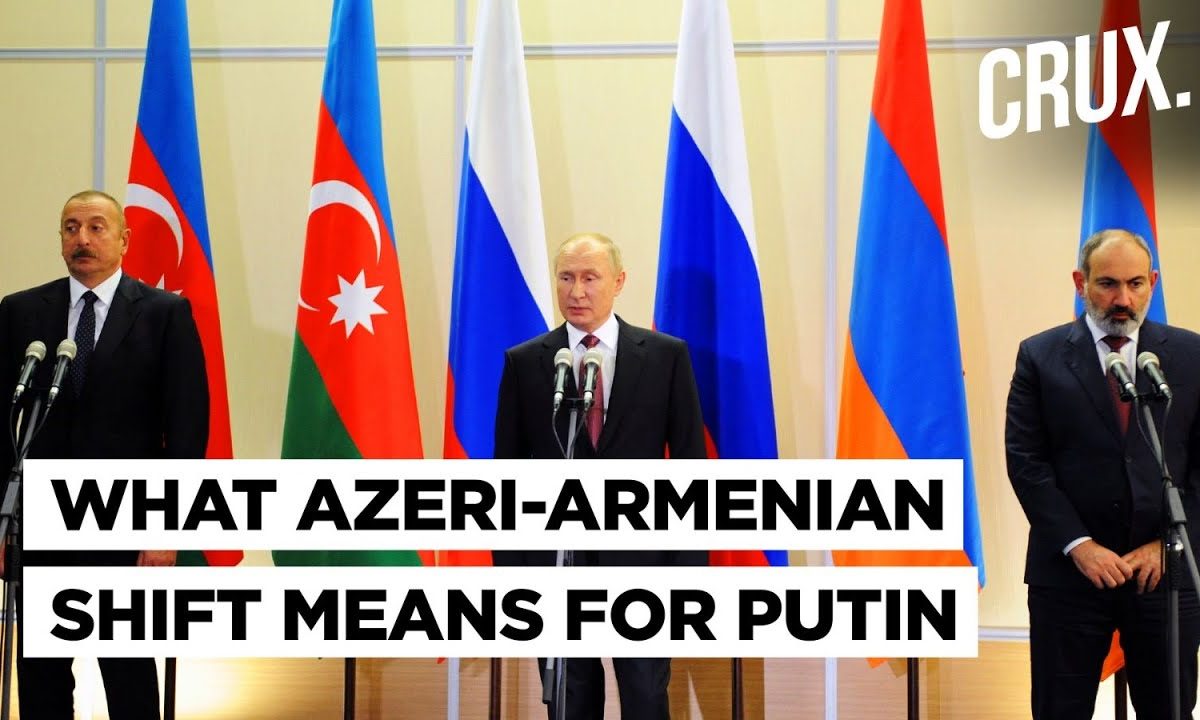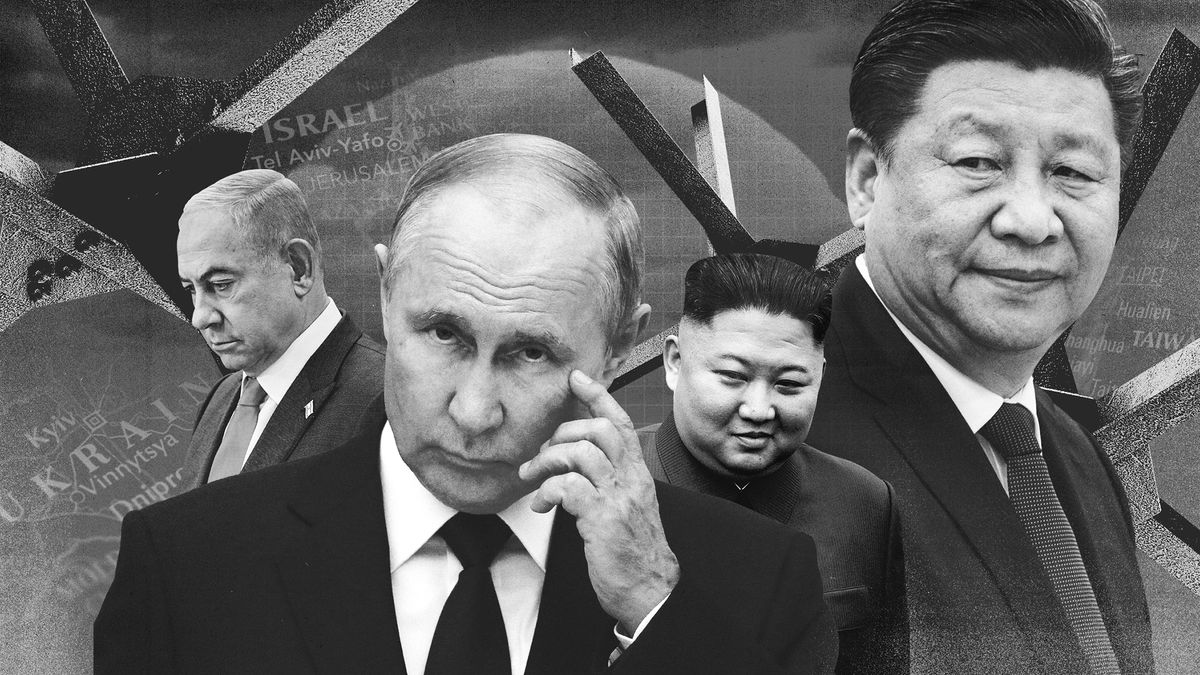Iran’s drone and missile attacks on Israel over the weekend risk setting off a chain of events that could lead to all-out war between the regional rivals in the Middle East.
“All eyes” are now on Israel’s response, said the BBC‘s security correspondent Frank Gardner. Many governments are “working around the clock” to avoid a wider war in the region.
Parallels being drawn with the lead-up to World War One may be overblown, said The Washington Post columnist David Ignatius. But “it’s a moment that eerily evokes the dynamics of summer 1914, when a war that every power sought to avoid suddenly appeared inevitable, with consequences that no one could predict”.
Escape your echo chamber. Get the facts behind the news, plus analysis from multiple perspectives.
From our morning news briefing to a weekly Good News Newsletter, get the best of The Week delivered directly to your inbox.
From our morning news briefing to a weekly Good News Newsletter, get the best of The Week delivered directly to your inbox.
Middle East
For decades, Israel and Iran have been engaged in a “shadow war” said Foreign Affairs. Attacks by Iran’s proxy groups, most recently on ships in the Red Sea, have been part of wider efforts by Tehran to oppose Israel, end its war in Gaza and supplant the US (and, to a lesser extent, Saudi Arabia) as the foremost power in the Middle East.
Iran’s first direct military attack on Israel has, however, changed the “strategic reality” of the region, said The Wall Street Journal‘s Yaroslav Trofimov, chief foreign-affairs correspondent.
Iran’s attack signals a “new phase”, Nadav Pollak, a former Israeli government analyst teaching at Reichman University, told Trofimov. Tehran is no longer “hiding behind proxies”. It is now “exposed to a direct attack from Israel. Going forward, Israel is not going to be able to sit quietly and intercept everything.”
US officials “hope that any exchange between Iran and Israel will be short and contained – and won’t draw in other powers”, said The Washington Post‘s Ignatius. “But they truly don’t know what’s ahead.”
Israel’s war cabinet is now faced with “two good options” for Prime Minister Benjamin Netanyahu, said Politico. He may be “tempted” to tell US President Joe Biden that he can keep the situation with Iran “under control” – provided Washington supports Israel’s planned offensive against Rafah, said The New Statesman.
The alternative would be a direct attack on Iran, said Politico. That would be a “huge undertaking for Israel alone”. And the US is “signalling that it wants to avoid that conflagration”.
If the US were to get drawn into a confrontation with Iran it could “divide, perhaps permanently”, the Western democracies that would back Washington (such as the UK), and those who “might sensibly prioritise renewed diplomatic outreach to Tehran”, said Simon Tisdall in The Guardian in January.
Another concern, Ali Vaez, an Iran expert at Crisis Group, told the Financial Times in February, is that “Tehran will turn to another avenue to up the stakes with the US – its nuclear programme”.
Russia
Russia’s invasion of Ukraine was described as “more dangerous than anything Europe has seen since the end of World War Two” by Politico in March 2022, then a matter of weeks into the conflict.
It has triggered the “worst crisis in Russia’s relations with the West since the 1962 Cuban Missile Crisis”, said the Daily Mail. “Even talk of a confrontation between Russia and Nato – a Cold War nightmare of leaders and populations alike – indicates the dangers of escalation as the West grapples with a resurgent Russia 32 years after the 1991 fall of the Soviet Union.”
With some European leaders thought to be tiring of the conflict, now in its third year, and resistance to open-ended financial support growing in Washington, Ukraine’s President Volodymyr Zelensky has warned that failure to fend off Russia’s aggression could spiral into confrontation with Nato. “And that certainly means the Third World War,” Zelensky said in January.
Last month a Russian cruise missile violated Nato airspace less than a week after Putin warned that a direct confrontation between Russia and the Western military alliance would be “one step away from a full-scale World War Three”, said Time.
If Putin remains “undeterred” in Ukraine, he will “almost certainly try his luck” in the Baltics, said Dominic Waghorn, Sky News‘s international affairs editor – “because he will assume the alliance is too spineless to stop him”. That view would likely be reinforced if Donald Trump were to carry through with his threats to pull America out of Nato if he wins the US presidential election in November.
China
It has long been assumed that the greatest threat to geopolitical stability is the growing tension between China and the US in recent years. A slight thawing led to a meeting between Presidents Xi Jinping and Biden in November, but core issues remain – most notably, over Taiwan and the question of its sovereignty.
Beijing sees the island nation as an integral part of a unified Chinese territory. It has, in recent years, adopted an increasingly aggressive stance towards the island and its ruling Democratic Progressive Party (DPP), which it has denounced as dangerous separatists. At the same time, the US has ramped up its support – financially, militarily and rhetorically – for Taiwan’s continued independence.
In response to the DPP’s re-election in January for an unprecedented third term, China’s Communist Party has “sharpened its rhetoric towards Taiwan, raising the pressure on the country as its president-elect Lai Ching-te prepares to take office in May”, said the Financial Times.
China’s most senior official in charge of Taiwan policy, other than Xi himself, told an annual meeting of the Communist Party that Beijing “must resolutely fight ‘Taiwan independence’ separatism” and “further grasp the strategic initiative to achieve the complete unification of the motherland”.
While most experts agree an imminent escalation is not on the cards, any invasion “would be one of the most dangerous and consequential events of the 21st century”, said The Times last April. It would “make the Russian attack on Ukraine look like a sideshow by comparison”.
Human costs aside, a military conflict between the world’s two biggest economies would lead to “a severing of global supply chains, a blow to confidence and crashing asset prices”, said The Guardian‘s economics editor Larry Elliott. “It would have catastrophic economic consequences, up to and including a second Great Depression.”
North Korea
Since talks with Trump in 2019 broke down over disagreements about international sanctions on Pyongyang, Kim Jon Un has “focused on modernising his nuclear and missile arsenals”, said Sky News.
In his New Year’s Eve address, he warned that the actions of the US and its allies have pushed the Korean peninsula to the brink of nuclear war. And he announced that the hermit kingdom had abandoned “the existential goal of reconciling with rival South Korea”, said The Associated Press.
“We believe that, like his grandfather in 1950, Kim Jong Un has made a strategic decision to go to war,” Robert L. Carlin and Siegfried S. Hecker wrote at 38 North, a website that tracks developments on the peninsula.
Alongside its military development, Kim has been “chumming up to Russia and remaining on the right side of China”, said The Times‘s Asia editor Richard Lloyd Parry.
This has “added greatly to tension on the peninsula”, said Lloyd Parry, and increased the chances of so-called miscalculation – “where one side assumes that the other is about to attack, and goes first”.




